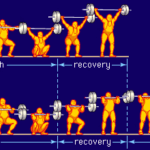In a world filled with distractions, finding ways to sharpen mental clarity, boost focus, and sustain productivity is a growing priority—not just for students and professionals, but for anyone seeking to improve quality of life. While many turn to caffeine or productivity hacks, one of the most powerful tools to enhance brain function is surprisingly simple: exercise.
Physical activity is widely known for its benefits to physical health, but an increasing body of research shows that regular movement can significantly improve mental performance. Whether you’re looking to think more clearly, remember more effectively, or concentrate for longer periods, fitness might be the key.
The Brain–Body Connection
Exercise stimulates a host of biological changes that support brain function. Here’s how:
- Increased blood flow to the brain delivers more oxygen and nutrients, supporting sharper thinking.
- Release of neurotrophic factors, particularly Brain-Derived Neurotrophic Factor (BDNF), supports the growth of new neurons and synaptic connections.
- Improved mood and reduced stress lead to better focus and decision-making.
- Enhanced sleep quality, indirectly linked to exercise, boosts memory consolidation and attention.
These mechanisms combine to create a stronger, more efficient, and more resilient brain.
Key Cognitive Benefits of Exercise
- Sharper Focus and Attention
Aerobic exercise increases activity in the prefrontal cortex—the brain’s control center for attention, decision-making, and impulse control. Even a short workout can help you regain mental clarity after a period of fatigue or distraction.
A 20-minute brisk walk or light jog can immediately improve focus and task-switching skills.
- Enhanced Memory and Learning
Regular physical activity improves both short-term and long-term memory by increasing hippocampal volume—the region of the brain involved in learning. It also enhances neuroplasticity, which helps the brain adapt to new information.
Students and professionals who engage in regular exercise often find it easier to retain information and learn new skills.
- Improved Mood and Reduced Mental Fatigue
Exercise stimulates the release of endorphins and serotonin, reducing anxiety and depression while lifting overall mood. A more balanced mood state leads to better concentration and reduced mental fatigue throughout the day.
- Long-Term Cognitive Protection
Beyond short-term performance, staying physically active is strongly associated with a reduced risk of cognitive decline and neurodegenerative diseases like Alzheimer’s. Consistency is key—the earlier you start, the more protective the effects.
What Types of Exercise Work Best for the Brain?
Aerobic Exercise (Cardio)
Running, brisk walking, cycling, swimming, or dancing are especially effective for boosting mental clarity and blood flow. Even 15–30 minutes of moderate cardio can improve executive function shortly afterward.
Strength Training
Weight lifting and resistance training aren’t just for muscles—they also support cognitive flexibility and executive function. Studies show benefits to memory, especially in older adults.
Mind–Body Practices
Yoga, Pilates, and tai chi combine movement with breathwork and mindfulness, which not only improve physical mobility but also reduce stress and improve emotional regulation—key for mental clarity.
High-Intensity Interval Training (HIIT)
Short bursts of high-intensity effort followed by rest can improve both fitness and attention spans. These workouts are time-efficient and offer a quick boost to energy and mental sharpness.
How to Structure Your Day for Mental Performance
You don’t need to overhaul your life to see results. Try these evidence-based strategies to integrate fitness into your routine for better cognitive performance:
- Move First Thing in the Morning
A light jog, walk, or short circuit can jumpstart your brain and set a productive tone for the day.
- Take Activity Breaks
Every 60–90 minutes, take 5–10 minutes to stretch, walk, or do light movement. It helps reset attention and boosts energy levels.
- Use Exercise Before Mentally Demanding Tasks
Got a presentation, exam, or deep work session? A quick cardio session beforehand may enhance your focus and mental endurance.
- Wind Down with Movement
A calming walk or yoga session at the end of the day helps process information, reduce stress, and prepare your mind for restful sleep.
Fitness as a Cognitive Investment
Think of exercise not just as a tool for physical health, but as an investment in your mental edge. In the same way we train muscles for strength and endurance, we can train our brains to focus longer, think clearer, and feel sharper—with movement as our method.
Even a few sessions per week can yield noticeable benefits. The key is consistency and listening to your body. Over time, you may find your most creative ideas, deepest concentration, and most confident decisions happen not in front of a screen—but right after you move.
Final Thoughts
The benefits of fitness extend far beyond physical appearance or athletic performance. If your goals include greater productivity, sharper memory, improved focus, and long-term brain health, regular exercise is one of the most effective habits you can build.
You don’t need hours in the gym to see results. A simple walk, a 20-minute HIIT session, or some mindful movement can transform your mental state—and over time, your cognitive health.



